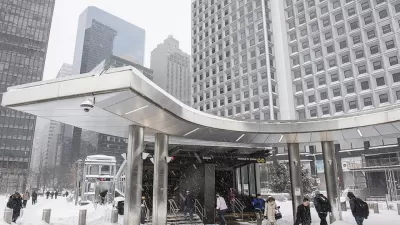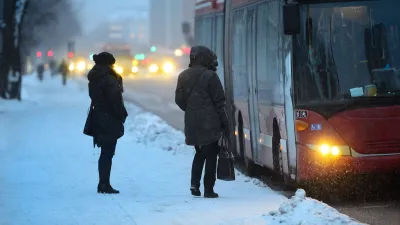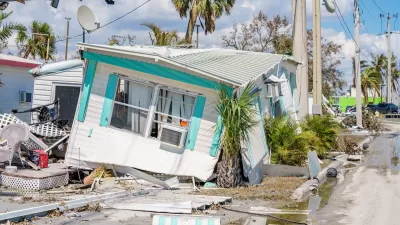According to new research, the tragic impact of Hurricane Maria lingered for months after the storm hit Puerto Rico on September 20, 2017, and at far greater magnitude than the federal government has acknowledged.

"Two months after Hurricane Maria ripped through Puerto Rico, scores of people were still dying in its aftermath," reports Milton Carrero.
Alexis Santos, a demographer at Pennsylvania State University, conducted the analysis with data from the Puerto Rico Institute of Statistics. Santos places the total number of deaths in September, October, and November at 1,230.
The number of deaths caused by Hurricane Maria raises troubling questions about the federal government's approach to the storm. As Carrero explains, "[w]hen President Trump visited Puerto Rico two weeks after the storm, he used the official death toll of 16 as evidence that his administration had been highly effective in dealing with the tragedy." The federal government has since adjusted the death toll, eventually maxing out the number at its current level of 64 on December 9. Obviously, Santos's research stands as a stark rebuttal of the government's narrative about the fallout from the storm.
The federal government's lack of attention to the lasting effects of the storm also stand in contrast to the creation of the Mayor Exchange, which Kristin Musulin reports will "connect mayors of U.S. mainland cities with mayors in Puerto Rico for guidance and support in rebuilding the island following Hurricane Maria."
"An estimated 40 mayors are expected to participate in the Exchange in the coming weeks, including Chicago Mayor Rahm Emanuel, Houston Mayor Sylvester Turner and Miami Mayor Francis Suarez," according to Musulin, New Orleans Mayor Mitch Landrieu has already been paired with Ponce Mayor Maria Meléndez.
FULL STORY: Puerto Rico deaths related to Hurricane Maria continued for months after the storm, data suggest

Planetizen Federal Action Tracker
A weekly monitor of how Trump’s orders and actions are impacting planners and planning in America.

Maui's Vacation Rental Debate Turns Ugly
Verbal attacks, misinformation campaigns and fistfights plague a high-stakes debate to convert thousands of vacation rentals into long-term housing.

San Francisco Suspends Traffic Calming Amidst Record Deaths
Citing “a challenging fiscal landscape,” the city will cease the program on the heels of 42 traffic deaths, including 24 pedestrians.

Defunct Pittsburgh Power Plant to Become Residential Tower
A decommissioned steam heat plant will be redeveloped into almost 100 affordable housing units.

Trump Prompts Restructuring of Transportation Research Board in “Unprecedented Overreach”
The TRB has eliminated more than half of its committees including those focused on climate, equity, and cities.

Amtrak Rolls Out New Orleans to Alabama “Mardi Gras” Train
The new service will operate morning and evening departures between Mobile and New Orleans.
Urban Design for Planners 1: Software Tools
This six-course series explores essential urban design concepts using open source software and equips planners with the tools they need to participate fully in the urban design process.
Planning for Universal Design
Learn the tools for implementing Universal Design in planning regulations.
Heyer Gruel & Associates PA
JM Goldson LLC
Custer County Colorado
City of Camden Redevelopment Agency
City of Astoria
Transportation Research & Education Center (TREC) at Portland State University
Jefferson Parish Government
Camden Redevelopment Agency
City of Claremont





























